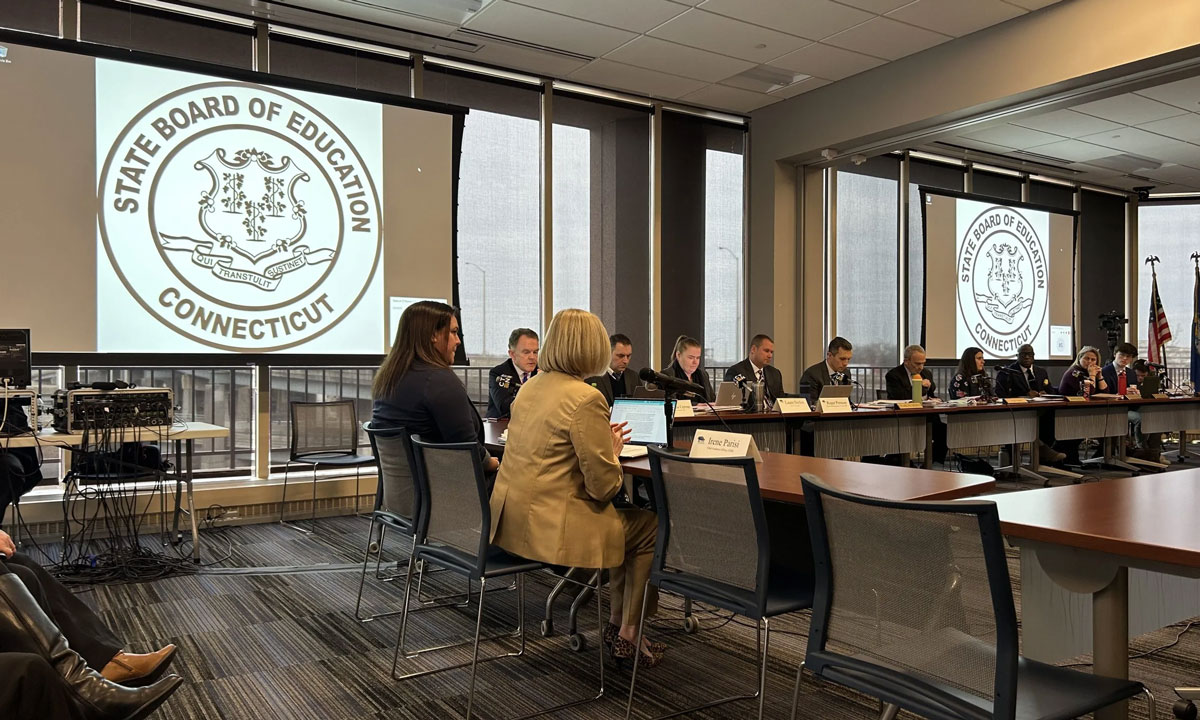Connecticut Board of Education Adopts ‘Bill of Rights’ for Non-English Speakers
Connecticut parents and students who don’t speak English will soon have access to more resources in their native language.

Get stories like this delivered straight to your inbox. Sign up for The 74 Newsletter
The state Board of Education unanimously voted Wednesday to adopt a “bill of rights” for non-English speaking parents —a piece of legislation from the 2023 session that will ensure families understand they are entitled to enroll their child in public education, regardless of immigration status, and receive translation services and important documents in their native language.
The law, which ultimately became part of the omnibus education legislation, House Bill 6762, garnered overwhelming support last year, after advocates, many of whom were parents who only speak Spanish, recounted stories about their inability to communicate with school officials or receive updates about their children’s education.
“This will ensure that other parents don’t have to go through the frustrating experience that I have been through,” Flor Galindo, a Manchester resident and parent of two, said in Spanish at the board meeting Wednesday morning. “For me, it has been a big challenge to simply be able to speak with any teacher or know about the services that schools provide to our children. For years, I watched as other children participated in extracurricular activities and my children were excluded because their first language is Spanish.”
After passage in the state legislature, the state Board of Education was responsible for drafting a document to “organize and elevate the rights that parents have related to language access through translation and interpretation and to clarify and affirm the access that children identified as [English Learners] have to grade-level content area instruction, language instruction programs and interventions,” according to the bill.
The state’s Department of Education plans to provide the document to districts already translated, and starting in July, parents will receive a copy of the bill of rights in their native language.
Additional copies will be available online on the website of local boards of education.
The rights include:
- The right for students to attend a public school in the state, regardless of the students’ or parents’ immigration status and without the need to submit immigration documents.
- The right for parents to have translation services provided during “critical interactions,” including parent-teacher conferences and meetings with administrators.
- The right for students to participate in a bilingual education program provided by the local or regional board of education.
- The right for parents to receive written notice in both English and their native language that their child will participate in a bilingual program.
- The right for students and parents to receive a “high-quality orientation session” in their native language.
- The right for parents to receive progress reports and meet with school staff to discuss the child’s English language development.
- The right for students to have “equal access to all grade-level programming” and core subject matter.
- The right for a student to receive yearly language proficiency testing.
- The right for a student to receive support services “aligned with any intervention plan” that districts provide to all students.
- The right for parents to contact the state’s Department of Education with any questions or concerns regarding these rights and accommodations.
On behalf of the state’s Department of Education, Irene Parisi, the chief academic officer, told board members that the state “will continue this work.”
“It doesn’t stop with just today,” Parisi said.
The department said its next steps will include offering information sessions to stakeholder groups, creating a new page on its website to easily access information regarding the bill and the development of processes to monitor district implementation, as well as a way for families to reach out with concerns.
This story was originally published in CT Mirror.
Get stories like these delivered straight to your inbox. Sign up for The 74 Newsletter

;)